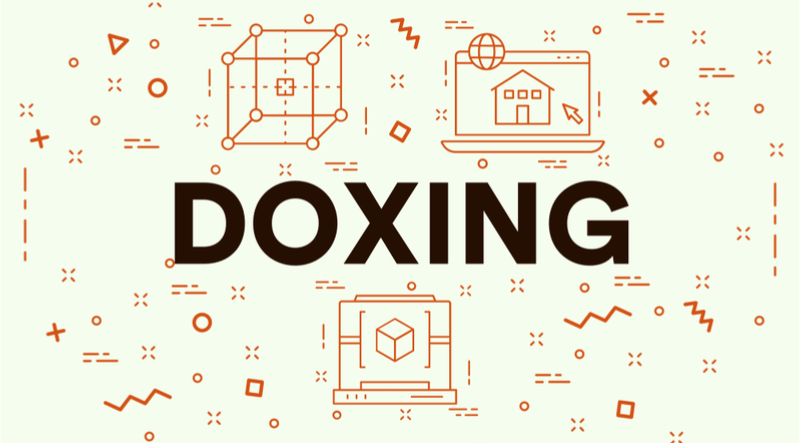Contents
- 0.1 Understanding Doxxing
- 0.2 Risks and Consequences
- 0.3 Case Studies
- 0.4 Prevention and Mitigation Strategies
- 0.5 Ethical Considerations
- 0.6 Conclusion
- 0.7 If you find yourself targeted by doxxing, it’s crucial to take immediate action to mitigate the risks and protect yourself from harm.
- 1 Here are steps you should consider taking:
- 2 The Dangers of Doxxing: Safeguarding Online Privacy
- 3 Author
Doxxing In today’s digital age, where personal information is readily available online, the phenomenon of doxxing has become a growing concern. Doxxing, derived from the word “documents,” refers to the malicious act of publicly revealing private or sensitive information about an individual without their consent. This practice can have serious consequences, ranging from personal safety risks to psychological harm and legal repercussions. In this article, we will delve into the intricacies of doxxing, explore its risks and impacts, and discuss ways to mitigate this growing threat.

Understanding Doxxing
Doxxing can take various forms, including posting someone’s home address, phone number, email address, social security number, or other personal details online. Perpetrators of doxing often gather this information through online research, hacking, social engineering, or by exploiting data breaches. Once exposed, the victim becomes vulnerable to harassment, stalking, identity theft, and other forms of abuse.
Risks and Consequences
The risks and consequences of doxxing are manifold. Firstly, it poses significant personal safety concerns, as victims may become targets of harassment, threats, or physical violence. Moreover, the psychological impact of having one’s private information exposed can be severe, leading to anxiety, depression, and trauma. From a legal standpoint, doxxing may constitute invasion of privacy, harassment, cyberbullying, or even stalking, depending on the circumstances.
Case Studies
Numerous high-profile cases illustrate the real-world consequences of doxing. For example, individuals targeted by online mobs have faced harassment campaigns, swatting incidents, and even offline attacks. In some cases, victims have been forced to relocate, change their identities, or seek legal protection to ensure their safety. These incidents underscore the urgent need to address the prevalence of doxxing and its impact on individuals and communities.
Prevention and Mitigation Strategies
To mitigate the risks of doxxing, individuals can take proactive steps to safeguard their online privacy, such as using strong passwords, enabling two-factor authentication, and limiting the sharing of personal information on social media. Additionally, platforms and internet service providers must implement robust security measures to prevent data breaches and unauthorized access to user information. Legal frameworks should also be strengthened to hold perpetrators of doxxing accountable for their actions and provide recourse for victims.
Ethical Considerations
From an ethical perspective, the practice of doxxing raises questions about the balance between freedom of expression and privacy rights. While transparency and accountability are essential in the digital age, they should not come at the expense of individuals’ safety and well-being. It is imperative for online communities to foster a culture of respect, empathy, and responsible behavior, where differences of opinion are expressed constructively and without resorting to harassment or intimidation bandar besar slot.
Conclusion
In conclusion, doxxing represents a significant threat to online safety and privacy, with far-reaching implications for individuals and society as a whole. By raising awareness of the risks and impacts of doxxing, implementing effective prevention strategies, and upholding ethical standards in online interactions, we can work towards creating a safer and more secure digital environment for everyone. It is essential for individuals, communities, and policymakers to collaborate in addressing this pressing issue and safeguarding the rights and dignity of all individuals online.
If you find yourself targeted by doxxing, it’s crucial to take immediate action to mitigate the risks and protect yourself from harm.
Here are steps you should consider taking:
- Stay Calm:
It’s natural to feel upset or anxious if you’ve been doxxed, but try to remain calm and avoid reacting impulsively. - Document the Evidence:
Keep a record of the doxxing incident, including screenshots, messages, and any other relevant information. This documentation may be useful if you decide to report the incident to authorities or take legal action. - Assess the Threat Level:
Evaluate the severity of the threat posed by the doxxing. If you believe your safety is at risk, prioritize measures to protect yourself and seek support from trusted friends, family members, or professionals. - Secure Your Accounts:
Change your passwords for all online accounts, enable two-factor authentication where available, and review your privacy settings to restrict access to your personal information. - Contact the Platform:
If the doxxing occurred on a social media platform or website, report the incident to the platform’s administrators or moderators. Many platforms have policies against doxing and may take action to remove the information and suspend or ban the perpetrator’s account. - Seek Legal Advice:
Consider consulting with a lawyer who specializes in cyber law or privacy rights to understand your legal options. Depending on the circumstances, you may be able to pursue civil or criminal action against the individual responsible for the doxxing. - Notify Law Enforcement:
If you believe the doxxing constitutes a credible threat to your safety or violates local laws, contact law enforcement authorities to report the incident. Provide them with any relevant evidence and cooperate with their investigation. - Protect Your Personal Information:
Take steps to minimize further exposure of your personal information online. Consider removing or limiting public access to sensitive details such as your home address, phone number, and email address. - Seek Support:
Reach out to trusted friends, family members, or mental health professionals for emotional support and guidance. Dealing with the aftermath of doxxing can be emotionally taxing, and it’s essential to prioritize self-care and well-being. - Stay Vigilant:
Remain vigilant for any further attempts at harassment, stalking, or identity theft following the doxxing incident. Take proactive measures to safeguard your online privacy and security, and be cautious about sharing personal information online.
Remember that you are not alone, and there are resources and support available to help you navigate the challenges of dealing with doxxing. Don’t hesitate to reach out for assistance and take steps to protect yourself and your online safety.
The Dangers of Doxxing: Safeguarding Online Privacy
In today’s interconnected digital world, the practice of doxxing poses significant risks and dangers to individuals’ privacy and safety. Doxxing, the malicious act of publicly disclosing private or sensitive information about someone without their consent, can have far-reaching consequences that extend beyond the online realm. Here are some of the dangers associated with doxxing:
Personal Safety Threats:
Perhaps the most immediate and alarming danger of doxxing is the threat it poses to an individual’s personal safety. Exposing personal details such as home addresses, phone numbers, or workplace locations can make individuals vulnerable to harassment, stalking, physical assault, or even targeted acts of violence.

Psychological Impact:
The psychological toll of being doxxed can be profound. Victims may experience feelings of fear, anxiety, helplessness, and paranoia as a result of having their privacy violated and their personal information exposed to the public. This can lead to long-term psychological trauma and emotional distress.
Identity Theft and Fraud:
Doxxing increases the risk of identity theft and fraud, as perpetrators may use the stolen information to impersonate the victim, gain unauthorized access to their accounts, or commit financial crimes. Victims may find themselves facing fraudulent charges, unauthorized transactions, or damage to their credit scores.
Harassment and Intimidation:
Doxxing often leads to targeted harassment and intimidation campaigns directed at the victim and their loved ones. Perpetrators may use the exposed information to launch online attacks, send threatening messages, or incite others to engage in harmful behavior. This can have a chilling effect on free expression and discourse online.
Damage to Reputation and Career:
Doxxing can tarnish an individual’s reputation and jeopardize their professional and personal relationships. Exposing private or embarrassing information may lead to public shaming, social ostracism, or damage to one’s career prospects. In some cases, victims may face employment discrimination or even termination as a result of being doxxed.
Legal Consequences:
Depending on the jurisdiction and the nature of the doxxing incident, perpetrators may face legal consequences for their actions. Doxing may constitute various offenses under criminal law, including harassment, stalking, cyberbullying, invasion of privacy, or defamation. Victims may pursue civil remedies such as restraining orders, damages, or injunctions against the perpetrators.
In conclusion, the dangers of doxxing are manifold and should not be underestimated. It is essential for individuals to take proactive measures to protect their online privacy, such as using strong passwords, enabling two-factor authentication, and being cautious about sharing personal information online. Furthermore, platforms and authorities must take decisive action to combat doxxing and hold perpetrators accountable for their harmful actions. By raising awareness of the risks and consequences of doxing, we can work towards creating a safer and more secure online environment for all.
Read More Article About “VILLAGE COOKING: THE VIBRANT ART OF CULINARY UNVEILED“





